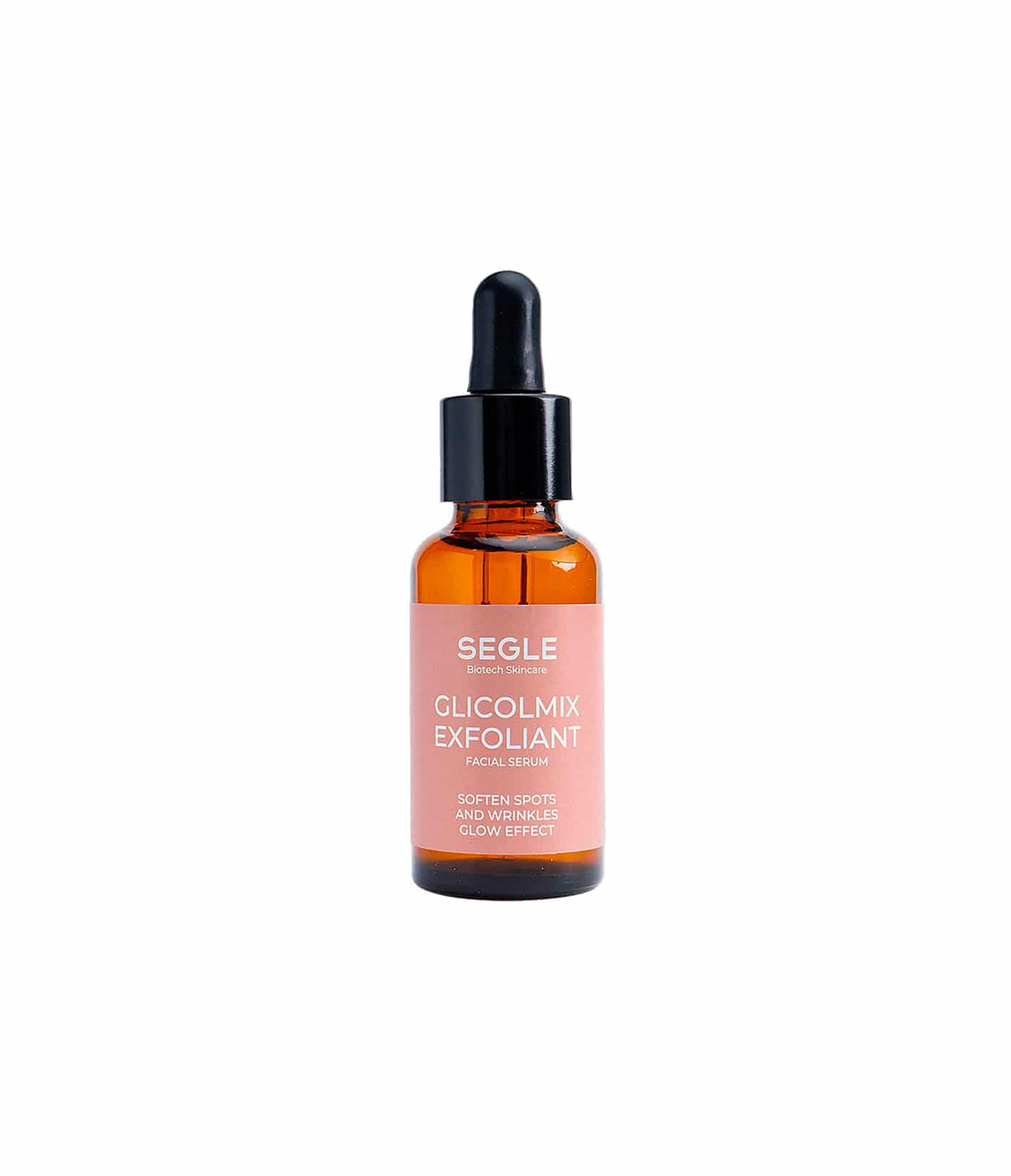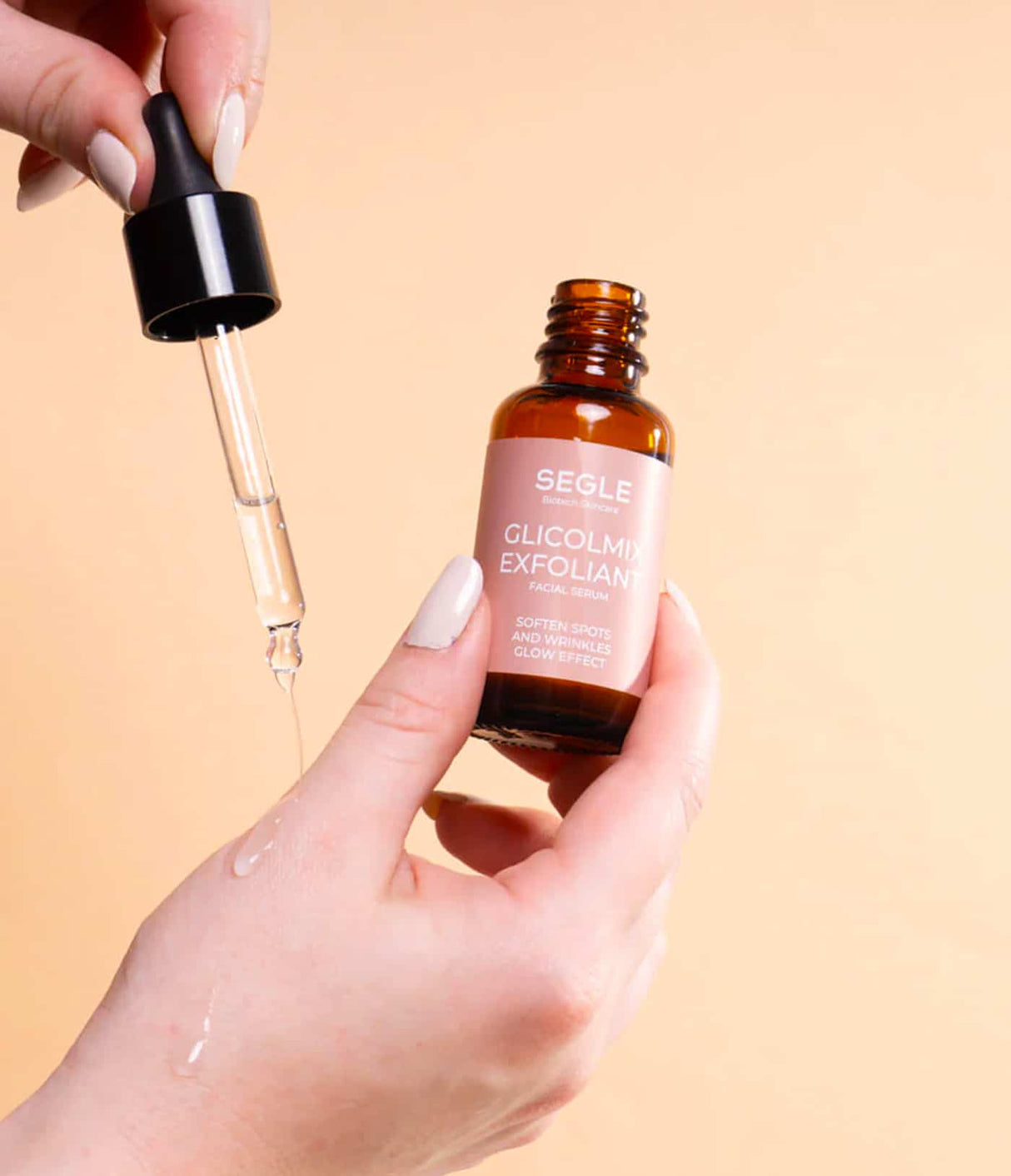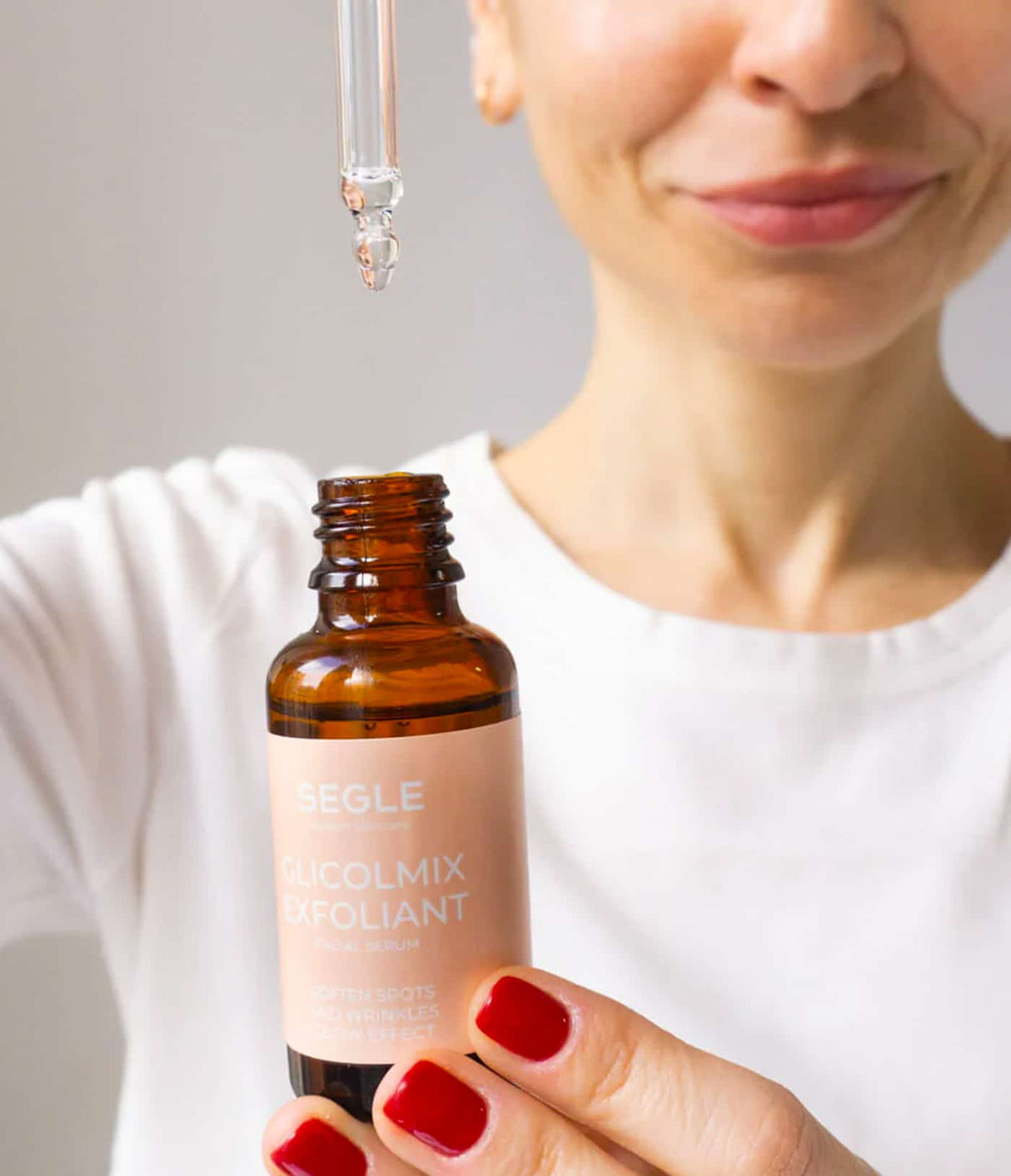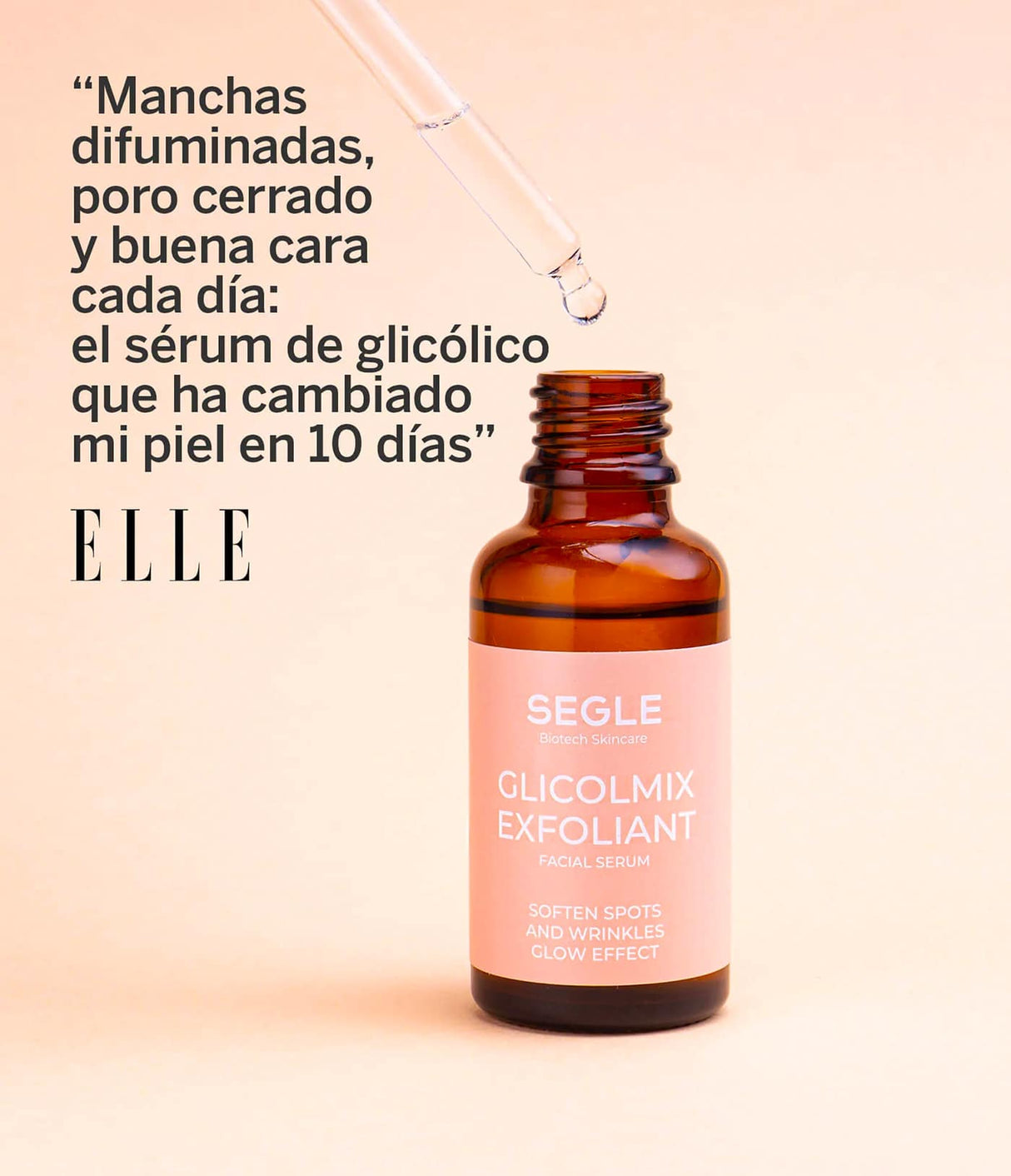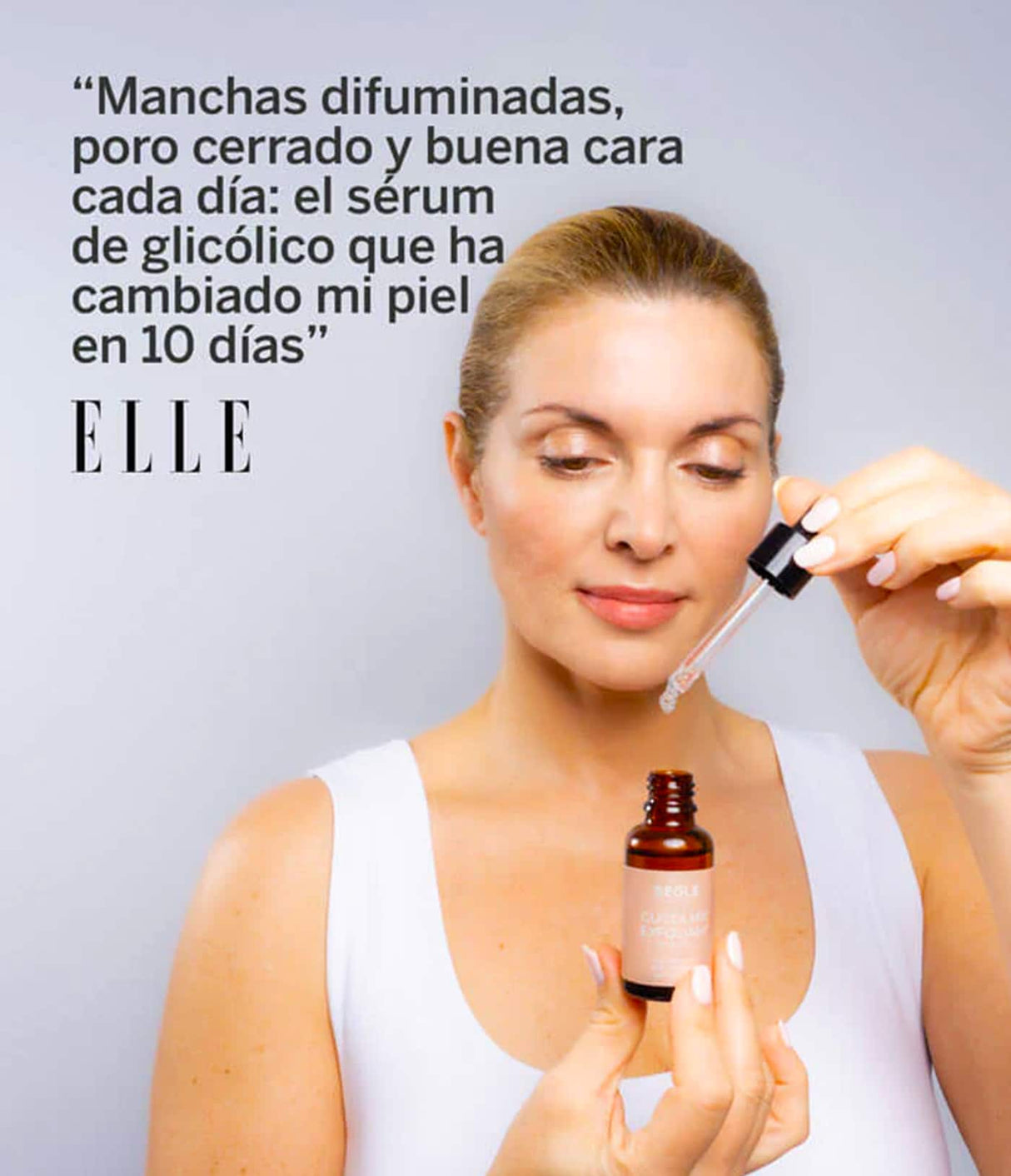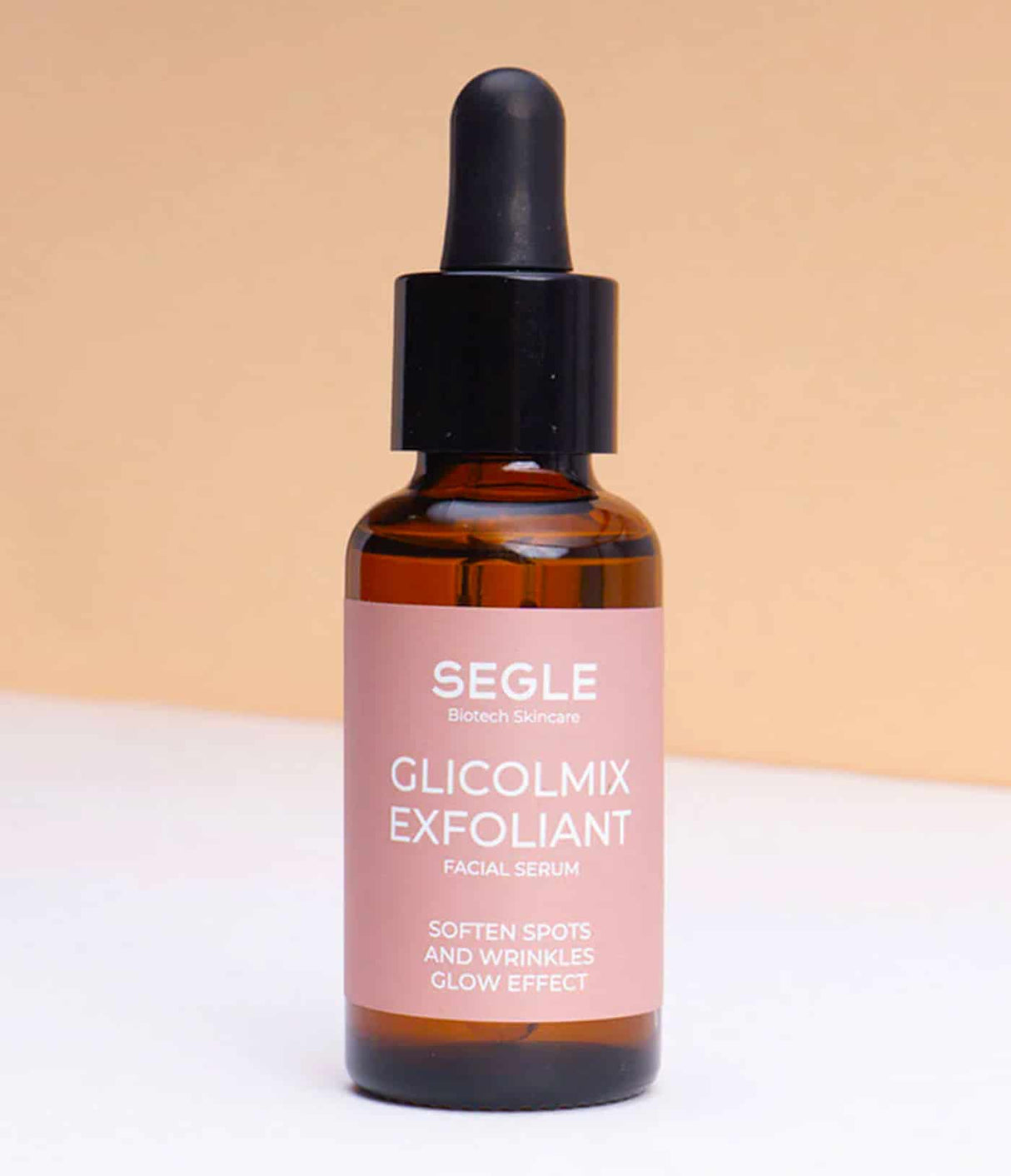20% off
Glicolmix Facial Exfoliant Serum
31,92€
39,90€
Unit price
/
Unavailable
Formulated with 20% alpha hydroxy acids (AHAs) including 15% glycolic acid, 4% lactic acid, and 1% citric acid. It removes dead cells and impurities, leaving skin smoother, softer, and very radiant.
- It lightens superficial sun spots, evening out skin tone
- Remove acne marks and scars
- Softens expression wrinkles, hydrates, and enhances elasticity
- Improves the texture and appearance of pores. Refines the skin
Glicolmix Facial Exfoliant Serum is backordered and will ship as soon as it is back in stock.
Couldn't load pickup availability
INCI
INCI
Key ingredients
Key ingredients
ACTIVE INGREDIENTS
Este chemical peel is formulated based on Alpha Hydroxy Acids (AHAs), a blend of acids extracted from natural products, mainly fruits and foods.
- Glycolic Acid at 15%, It is an AHA derived from sugar cane. Thanks to its small size, it penetrates the skin more easily, allowing for deeper exfoliation and cell renewal. It helps eliminate superficial acne spots and marks, evens out skin tone, and smooths wrinkles. It also regulates sebum secretion and provides hydration to the skin.
- Lactic Acid at 4%, is a soothing and moisturizing active ingredient. It has renewing, illuminating, and skin tone-unifying properties.
- Citric Acid at 1%, It comes from various fruits (citrus such as orange, lemon), characterized by its antioxidant action, brightens and lightens spots.
INGREDIENTS
Aqua, Alcohol Denat, Glycolic Acid, Ammonium Lactate, Lactic Acid, Propylene Glycol, Citric Acid, Benzyl Alcohol, Hydroxyethylcellulose, Parfum.
Mode of employment
Mode of employment
DIRECTIONS FOR USE
Apply a few drops to the face and décolleté, (especially on areas with marks or spots). If it is your first time using it, leave it on for 15 to 30 minutes and rinse off with water (also rinse your hands). Afterwards, you can use a moisturizing or regenerating serum like Skin Factor or Blue Balance.
You can gradually increase the application time as your skin gets used to it, even leaving it on overnight. (Half an hour after application, we recommend using a moisturizing or regenerating serum such as Skin Factor or Blue Balance).
As a shock treatment, you can use it 3-5 nights a week, and as a maintenance exfoliating treatment 1-2 nights per week. Dry and/or sensitive skin should use it once a week or every 10 days.
Remember to use high sun protection the next day.
Results
Results
RESULTS


Glycolmix Serum
IT'S FOR YOU IF...
For dull skin, with superficial blemishes, expression wrinkles or acne marks.
To accelerate the renewal of all types of skin, which want to stay healthy, soft and vital. We believe that weekly exfoliation should always be part of your skin care routine.
To improve the condition of combination-oily, acne-prone skin. Prevents the appearance of pimples and blemishes as it keeps the pore clean.
In case of sensitive skin it should be used with caution (see How to use it). Do not use in case of very reactive or intolerant skin.
WHAT ARE AHA'S, ALPHAHYDROXYACIDS?
They are a type of natural acids that come from different plants, fruits and foods widely used in cosmetics and by dermatologists since they have a triple action: they exfoliate, renew and hydrate the skin in a very effective way and therefore improve its texture and quality. .
In fact, since ancient times, they have been used: Cleopatra bathed in sour milk (which contains lactic acid) to get much softer skin.
The best known alpha-hydroxy acids are: glycolic acid (comes from sugar cane), lactic acid (from sour milk), citric acid (citrus fruits: orange, lemon, lime, tangerine), malic acid (green apple) and Tartaric acid (comes from grapes). Other newer ones are lactobionic acid (obtained from lactose in milk) and maltobionic acid (obtained from maltose in barley).



